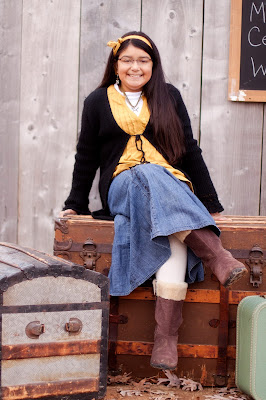This blog hop is sponsored by Baptist Missionary Women. Enjoy learning about where we live and serve from missionary women all over the world!
The Basque region of Spain is known as the Basque Country. That’s because it’s the ethnic homeland of Basque people. We’ve lived and worked here for more than thirty years, rearing our kids here and starting a church near the beautiful city of San Sebastián.
The Basque region of Spain is known as the Basque Country. That’s because it’s the ethnic homeland of Basque people. We’ve lived and worked here for more than thirty years, rearing our kids here and starting a church near the beautiful city of San Sebastián.
What do I wish you knew about our place of service?
1. The Basque Country is one of the most beautiful places in the world (when the sun comes out). We
pay for all the green hillsides with many days of rain. But, when the sun
shines, nowhere is prettier. We have gorgeous beaches, high mountains, and
beautiful emerald hillsides dotted with sheep and cattle. Every town looks like
something out of a fairytale.

2. The Basque Country is the least religious part of Spain. Most people would claim to be atheists, and most are nominally Roman Catholic in culture and tradition. Very few people go to church (of any religion) except for weddings, funerals, baptisms, and first communions. The vast majority of the people here don't want to talk about God.
3. Most parts of the Basque Country have had very little evangelical influence (if any) before the last thirty years. Mostly, the people have only had exposure to the state church—Roman Catholicism. There’s a tradition of witchcraft in the Basque region. Anything different from the Catholic Church is mostly unknown. The vast majority of the people have never once heard a presentation of the gospel.
4. The Basque Country is full of lovely people. The Basque region gets a bad rap because of a small group of terrorists. Believe me, we’ve lived here over thirty years, and 99% of the people we’ve met have been gracious, kind, friendly, and have treated us very well. We can walk almost anywhere at night and not feel threatened at all. There’s a very low crime rate. We can always count on friends and neighbors to help us out when needed. The Basques are hardworking, family-oriented, and fun.
5. Social pressure is very strong. The Spanish have a saying ¿Qué dirán? (What will they say?). In the Basque region, as in many other parts of Spain, people live in high-rise apartment buildings. Neighbors typically keep tabs on their neighbors and know their every movement. So, people are very hesitant to break the mold and do anything different from what’s generally done. People have actually told us they would not set foot in our church because, “What will they say?” Quite a few people have stopped outside the door to call into the building for the person they wanted to talk to. They would not cross the threshold! There’s a lot of pressure to party, have lots of friends, be generous, participate in fiestas, and mix with the neighbors socially.

6. It’s perfectly
legal to place gospel tracts in mailboxes. We do mass evangelism this way.
We go from house to house, climb lots of stairs, and put tracts directly into
each mailbox. This way, we know that entire towns and cities have been covered
with gospel tracts. Several of the people who regularly attend our church today
were first reached by reading our simple gospel tracts. This has been the best
way we’ve found to get the gospel to those who’ve never heard. People who would
never visit our church will sit down and read a tract.
7. Our church is multi-national. Over the years, the only continents not represented in our church have been Asia and Antarctica. At present, a third of our faithful people are from Africa, another third from Spain (including Spanish, Basques, and gypsies), and the rest of us are from other countries in Europe and the Americas.
7. Our church is multi-national. Over the years, the only continents not represented in our church have been Asia and Antarctica. At present, a third of our faithful people are from Africa, another third from Spain (including Spanish, Basques, and gypsies), and the rest of us are from other countries in Europe and the Americas.
8. Patience is
probably the most necessary virtue for working here. There’s a word in
Spanish, confianza, that basically
means “earning one’s trust.” It can take literally years to do that here in the Basque region. While people are naturally
friendly, and it’s easy to make conversation with anyone, it’s hard to make
friendships that are trusting and genuine. Over the years, though, people notice
“those foreigners are here for the long haul.” They work beside us and watch
us. We patronize their businesses. After years of interaction, they finally feel
like they know us, and then we can freely share the gospel. Those who
would never accept a gospel tract upon short acquaintance and were embarrassed
to be seen talking to us now greet us warmly. We've made
friends, and we are thankful. Patience is also important for church planting. It
takes an average of twenty years to establish one church.
9. Immigrant families are filling Spanish churches. This is true all over Spain and increasingly in
the Basque Country. There are many people from other parts of the world who've moved to Spain for a better life. Immigrants tend to be more open than
Spanish people to evangelical churches. Some are already born again believers,
and some aren’t, but they will come to church when invited by a paisano (someone from their home
country). The influx of peoples from outside of Spain has helped our Spanish
churches grow, both spiritually and numerically.
10. Spanish food is nothing like Mexican food! It's flavorful, healthy, and delicious, but the flavors aren't anything like Mexican food. There are several world-renowned restaurants in the Basque region. The pictured dish is paella, the "national" dish of Spain. Each region has its own special way of preparing it, and it's delicious wherever you go.
To read the next "Ten Things" post, hop on over to Jamie's blog, here. To read them all, start at our home page at Baptist Missionary Women and then follow each link to the next woman's blog.












